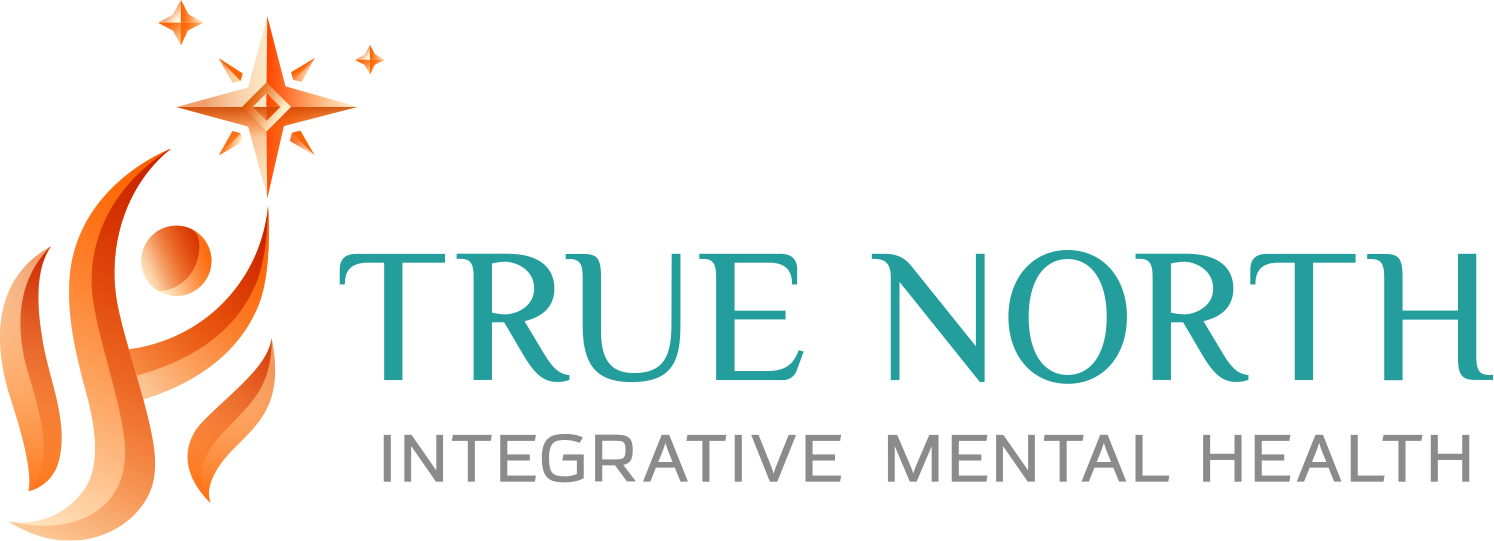Anxiety: Symptoms, Types, Causes, Prevention, and Treatment
Dr. Jamie Rogers • June 18, 2024
Anxiety is a common issue that affects many people. It can make you feel uneasy, worried, or scared.
This blog post will help you understand anxiety better. We will look at its symptoms and the different types of anxiety.
We will also explore what causes anxiety and how you can prevent it. Lastly, we will discuss the treatments available for those who suffer from it.
Whether you experience anxiety yourself or know someone who does, this guide aims to provide clear and helpful information.
Symptoms of Anxiety
Physical Symptoms
Anxiety can manifest in various ways physically, and these symptoms can differ from person to person. Recognizing these signs is crucial for identifying anxiety early and seeking appropriate help.
● Increased Heart Rate: Feeling like your heart is racing or pounding can be a common sign of anxiety.
● Sweating: Excessive sweating, even when not exerting oneself, can indicate anxiety.
● Shaking or Trembling: Uncontrollable shaking or tremors may be experienced.
● Shortness of Breath: A feeling of tightness in the chest or difficulty breathing is often reported.
●
Fatigue: Anxiety can be physically draining, leading to persistent tiredness.
Emotional Symptoms
Anxiety can also greatly impact one's emotional well-being. Recognizing these emotional signs is just as important as identifying physical symptoms.
● Persistent Worry: Constantly feeling worried or on edge, even about small or trivial matters.
● Restlessness: An inability to relax or feeling unusually restless in situations where you would normally feel comfortable.
● Irritability: Becoming easily irritated or angered over minor issues.
●
Difficulty Concentrating: Struggling to focus or maintain attention, often as a result of intrusive anxious thoughts.
Behavioral Symptoms
Behavioral symptoms of anxiety can significantly affect daily life and routines. Recognizing these changes can be key to understanding and managing anxiety.
● Avoidance: People with anxiety often start to avoid places, situations, or activities that trigger their anxiety.
● Compulsive Behavior: Repeatedly performing certain actions or routines to cope with anxious feelings.
● Procrastination: Putting off tasks or responsibilities due to overwhelming anxiety.
●
Social Withdrawal: Reducing social interactions and engagements to prevent anxiety-provoking situations.
Types of Anxiety Disorders
There are several types of anxiety disorders, each with its own set of challenges and symptoms. Understanding the differences can help in seeking the appropriate treatment and support.
Generalized Anxiety Disorder (GAD)
Generalized Anxiety Disorder is characterized by chronic anxiety, exaggerated worry, and tension, even when there is little or nothing to provoke it.
●
Symptoms: Worrying excessively about everyday matters, difficulty sleeping, and muscle tension.
Panic Disorder
Panic Disorder involves recurrent, unexpected panic attacks. These attacks are sudden periods of intense fear that can include palpitations, sweating, and feelings of choking.
●
Symptoms: Sudden and repeated panic attacks, fear of the next attack, and avoiding places where previous attacks have occurred.
Social Anxiety Disorder (Social Phobia)
Social Anxiety Disorder, or social phobia, is a fear of social situations where one might be embarrassed or judged. This can make everyday activities like working, shopping, or meeting new people extremely challenging.
●
Symptoms: Avoiding social situations, intense fear of being watched or judged by others, and feeling overly self-conscious in everyday scenarios.
Specific Phobias
A specific phobia involves a significant and irrational fear of a specific object or situation that poses little or no danger. This can lead to avoidance behavior and significant distress.
●
Symptoms: Extreme fear or anxiety when exposed to a specific object or situation, knowing the fear is irrational, yet feeling powerless to control it.
Causes of Anxiety
Biological Factors
Anxiety can be rooted in various biological factors that may predispose an individual to experience it.
● Genetics: A family history of anxiety disorders can increase the risk of developing anxiety.
● Brain Chemistry: Imbalances in brain chemicals, such as serotonin and dopamine, can be a contributing factor.
●
Health Conditions: Certain medical conditions, like thyroid problems or heart arrhythmias, can cause or exacerbate anxiety symptoms.
Environmental Triggers
The environment in which one lives and works can significantly influence anxiety levels.
● Stressful Life Events: Major events like the loss of a loved one, job loss, or divorce can trigger anxiety episodes.
● Trauma: A history of trauma or abuse can leave lasting effects and contribute to anxiety disorders.
●
Work and Personal Life Balance: High-pressure work environments, lack of work-life balance, and financial stressors can elevate anxiety levels.
Psychological Factors
These factors stem from an individual's personality and life experiences.
● Personality Traits: Certain traits, such as being overly sensitive or having perfectionist tendencies, can predispose one to anxiety.
●
Childhood Experiences: Early childhood experiences, including neglect or overprotection, can shape an individual’s susceptibility to anxiety.
Preventing anxiety involves adopting a proactive approach to mental health. Integrating some of the strategies listed below can greatly enhance your ability to manage stress and reduce the likelihood of experiencing anxiety disorders.
Healthy Lifestyle Choices
Making conscious decisions about your daily habits can have a substantial impact on your mental well-being.
- Regular Exercise: Engaging in physical activities such as walking, running, or yoga can boost your mood and reduce anxiety symptoms.
- Balanced Diet: Consuming a diet rich in fruits, vegetables, lean proteins, and whole grains can improve brain health and mitigate anxiety.
- Adequate Sleep: Ensuring you get enough restful sleep each night supports overall mental health and helps prevent anxiety.
- Limited Alcohol and Caffeine: Both substances can exacerbate anxiety. Monitor your intake to ensure it doesn't negatively affect your mental health.
Stress Management Techniques
Adopting effective stress relief practices is crucial for anxiety prevention.
- Mindfulness Meditation: Regular practice of mindfulness techniques can help you stay present and manage anxious thoughts.
- Deep Breathing Exercises: Simple breathing exercises can calm your nervous system and reduce stress.
- Time Management: Organizing your tasks and responsibilities can lower stress levels and prevent anxiety from becoming overwhelming.
Building a Support Network
A strong support system can be an invaluable resource in preventing and managing anxiety.
- Strong Social Connections: Maintain regular contact with friends, family, and loved ones to build a support network you can rely on.
- Support Groups: Joining a support group, whether in person or online, can provide a sense of community and shared understanding.
- Professional Help: Don’t hesitate to consult a mental health professional if you feel overwhelmed; therapy can be a preventative measure as well.
When anxiety becomes overwhelming, seeking appropriate treatment is crucial. There are various treatment options available, tailored to suit different needs and preferences.
Psychotherapy
Psychotherapy, or talk therapy, involves working with a therapist to reduce anxiety symptoms.
● Cognitive Behavioral Therapy (CBT): A highly effective form of therapy that helps individuals identify and alter negative thought patterns and behaviors contributing to anxiety.
● Exposure Therapy: This method involves gradually exposing individuals to anxiety-provoking situations to desensitize them over time.
● Dialectical Behavior Therapy (DBT): Combines techniques from CBT with mindfulness strategies to help manage emotional regulation and stress.
Medication
In some cases, medication may be prescribed to help manage anxiety symptoms.
● Selective Serotonin Reuptake Inhibitors (SSRIs): Commonly prescribed antidepressants that can help reduce anxiety.
● Benzodiazepines: Medications that can provide quick relief of severe anxiety symptoms but are typically used short-term due to the risk of dependence.
● Beta-Blockers: Used primarily to manage physical symptoms of anxiety such as rapid heartbeat.
Alternative Therapies
Exploring alternative therapies can also complement conventional treatment methods.
● Herbal Remedies: Some people find relief from anxiety symptoms using natural supplements like valerian root or chamomile.
● Acupuncture: This traditional Chinese medicine practice may help reduce anxiety by promoting balance and healing within the body.
● Aromatherapy: Utilizing essential oils such as lavender or bergamot can provide a calming effect and reduce stress.
Take the Next Step
Anxiety can be a challenging and overwhelming experience, but it's important to remember that help is available. By understanding the symptoms, types, causes, prevention strategies, and treatment options, you can take control of your anxiety and improve your quality of life.
If you're struggling with anxiety, don't hesitate to seek professional help and explore the many resources available to support you on your journey.
Are you ready to take control of your anxiety and improve your well-being?
Visit SMEG and True North IMH today to speak to one of our mental health experts about help with managing anxiety.

Our Helpful Links
Schedule a Consultation
Get help with depression today! It's important to know that you are not alone.

